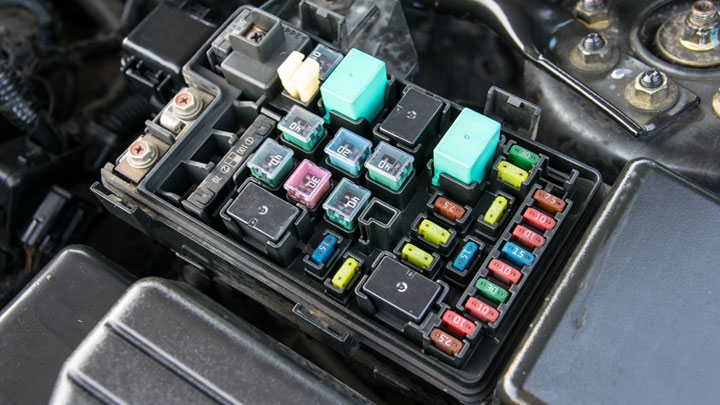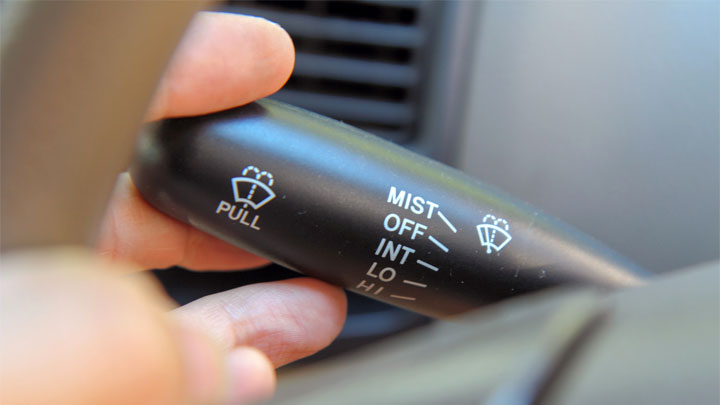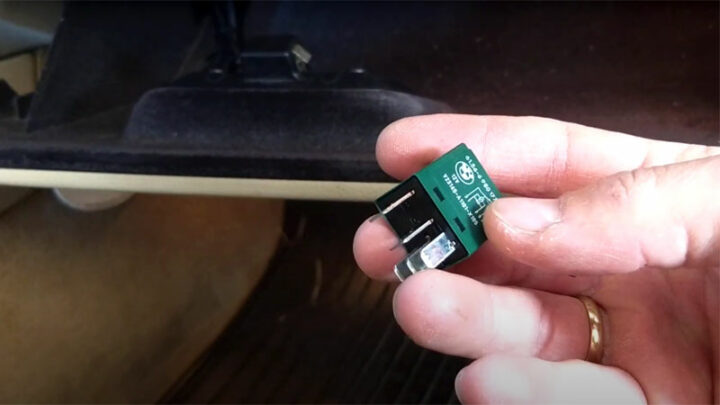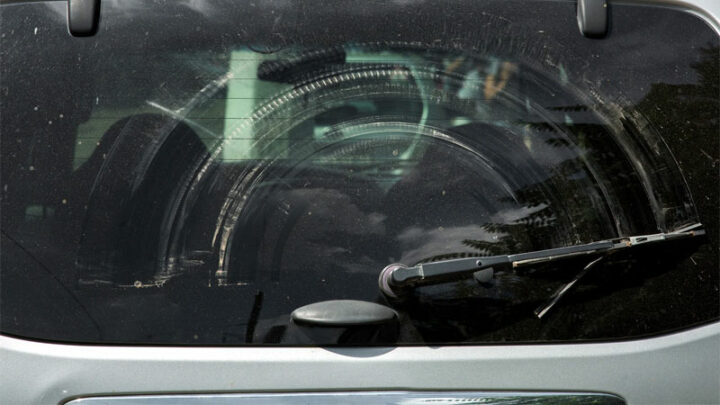Windshield Wipers Won’t Turn Off? (Causes and What to Do)
Imagine driving into the clear, following a lengthy rainshower, only to find yourself unable to turn your vehicle’s windshield wipers off. As outlandish as this might sound, an untold number of motorists encounter this exact issue on an annual basis.
Keep reading to learn why your windshield wipers aren’t turning off and what to do if you find yourself in that situation.

Quick Temporary Fixes
Fix #1 – Disconnect Battery
One quick fix that can be attempted in the hope of remedying windshield wipers that will not stop is to shut the vehicle off and disconnect the negative battery terminal.
After 15 minutes, the negative battery cable can be reconnected, and the engine can be started. If a wayward control module is to blame, this will often remedy the symptoms at hand.
Fix #2 – Remove Wiper Fuse or Relay

Another simple temporary fix involves removing the vehicle’s windshield wiper fuse. In theory, this should alleviate all power from the windshield wiper circuit in its entirety, thus eliminating any potential for operation. However, it is worth mentioning that results from this quick fix may vary, as all vehicles are wired slightly differently.
Likewise, the windshield wiper relay can be removed to temporarily resolve this issue at hand, if doing so proves simpler than locating and removing the fuse to this circuit.
Regardless, the name of the game involves quickly interrupting power distribution throughout the affected circuit in question. Disrupting this power is the quickest possible avenue to eliminating the wiper function as a whole.
Common Causes of Wiper Blades That Won’t Turn Off
There are several different reasons that your wipers might fail to turn off when requested to do so. Each of these underlying concerns requires its own specific action to fix.
#1 – Faulty Wiper Control Switch

In certain instances, a vehicle’s wiper control switch (or multi-function switch) can fail. As a result, your car’s wiper motor circuit might not ever receive the necessary signal to discontinue wiper operation. In such cases, multi-function switch replacement will likely prove necessary.
#2 – Defective Park Switch
Virtually all windshield wiper circuits contain a secondary park switch that ensures that a vehicle’s wipers return to their “rest position”, once deactivated.
If this switch were to become damaged, it is entirely possible for your vehicle’s wipers to continue operating without exception, as no true parking in the rest position is ever truly achieved.
#3 – Stuck/Bad Wiper Relay

Under certain circumstances, a vehicle’s windshield wiper relay can become stuck, thereby continuing to feed power to the affected wiper motor circuit without pause.
Luckily, this issue is relatively easy to repair and can be mitigated in its entirety with the installation of a new windshield wiper circuit relay.
#4 – Faulty Intelligent Module
Most wiper-related functions are ultimately controlled by a specific intelligent module found on the vehicle in question. Though rare, these modules can fail, causing a vehicle’s wipers to do many crazy and unpredictable things, including running on-end, without exception.
What To Do If Your Wiper Blades Refuse to Turn Off
If your wiper blades refuse to turn off, action needs to be taken immediately to prevent damage to a vehicle’s wipers and/or windshield.
As mentioned above, in order to fix the issue temporarily, it is best to remove the affected vehicle’s wiper motor fuse and/or relay. Information detailing which fuse/relay to remove can be found on the underside of most automotive fuse box lids.
When armed with the correct equipment, you should restore the previously removed fuse/relay and attempt to diagnose the source of the problem. This is most commonly accomplished with the use of a digital multimeter or test light.
Simply put, you need to trace back the source of the distributed power/ground being applied to the wiper motor circuit, even in the absence of a direct call to provide such a feed.
In any event, the root cause of a vehicle’s unintended wiper operation should be diagnosed and repaired at the first available opportunity. Doing so will minimize the risk of undue wiper motor and windshield damage.
If you’re not confident in handling these repairs on your own or you simply don’t have the time, consider booking an appointment with a reliable service center as soon as possible.

What If Only My Rear Wiper Isn’t Turning Off?
If only a vehicle’s rear wiper isn’t turning off, there is at least a good chance that the rear wiper switch has failed, meaning that it is no longer capable of alleviating power through the rear wiper circuit. This often requires the replacement of the defective switch to get things back to normal.
Alternatively, some vehicles come equipped with a separate rear wiper park switch. If this switch fails, it’s possible for a vehicle’s rear wiper to continue cycling, as long as ignition power is supplied. It is worth mentioning, however, that this issue as a whole is relatively rare to encounter.
Why You Shouldn’t Ignore the Problem

You should never ignore the issue of an overall inability to turn off your vehicle’s wipers for a number of reasons. The first, and perhaps most important of these reasons centers around reducing distractions while driving.
The noise and distraction that comes with squeaky wipers operating across a dry windshield can be significant. You owe it to yourself, your passengers, and anyone else on the road to avoid such distractions.
In addition, wiper degradation will be rapid when no rain or moisture is present. Streaking a dry rubber wiper blade across a windshield can cause immediate damage to the wiper in question.
Furthermore, once significantly damaged, a wiper blade still in operation can cause etching of a vehicle’s windshield as the metal wiper blade frame goes back and forth across the glass. This can be especially troubling, as costly windshield replacement can be necessitated in the end.
- 5 Symptoms of an EVAP Leak (and Repair Cost) - Apr 27, 2024
- P0480 Code (Symptoms, Causes, and How to Fix) - Apr 19, 2024
- Car Temperature Gauge Stopped Working? (Here’s Why) - Apr 15, 2024
